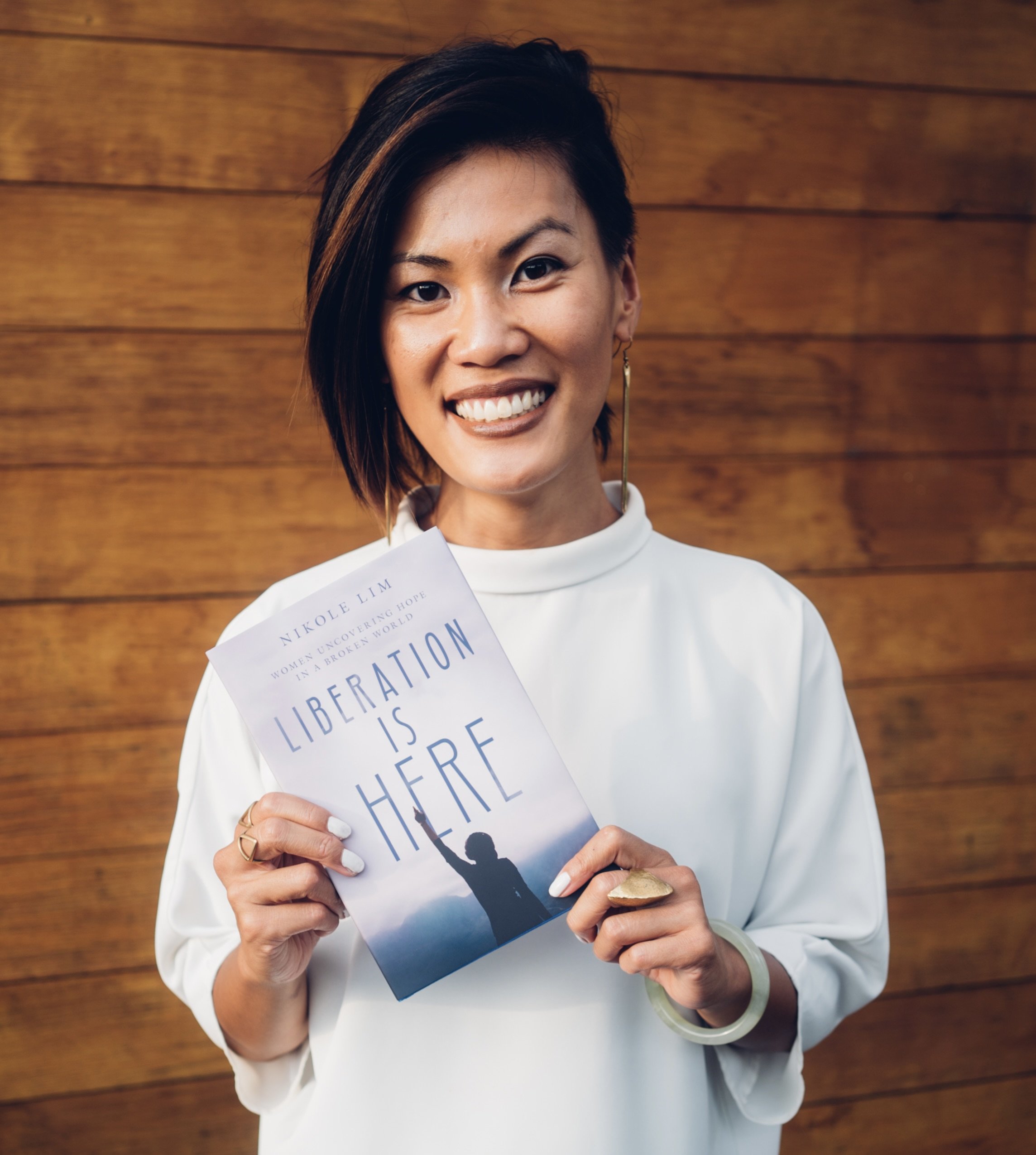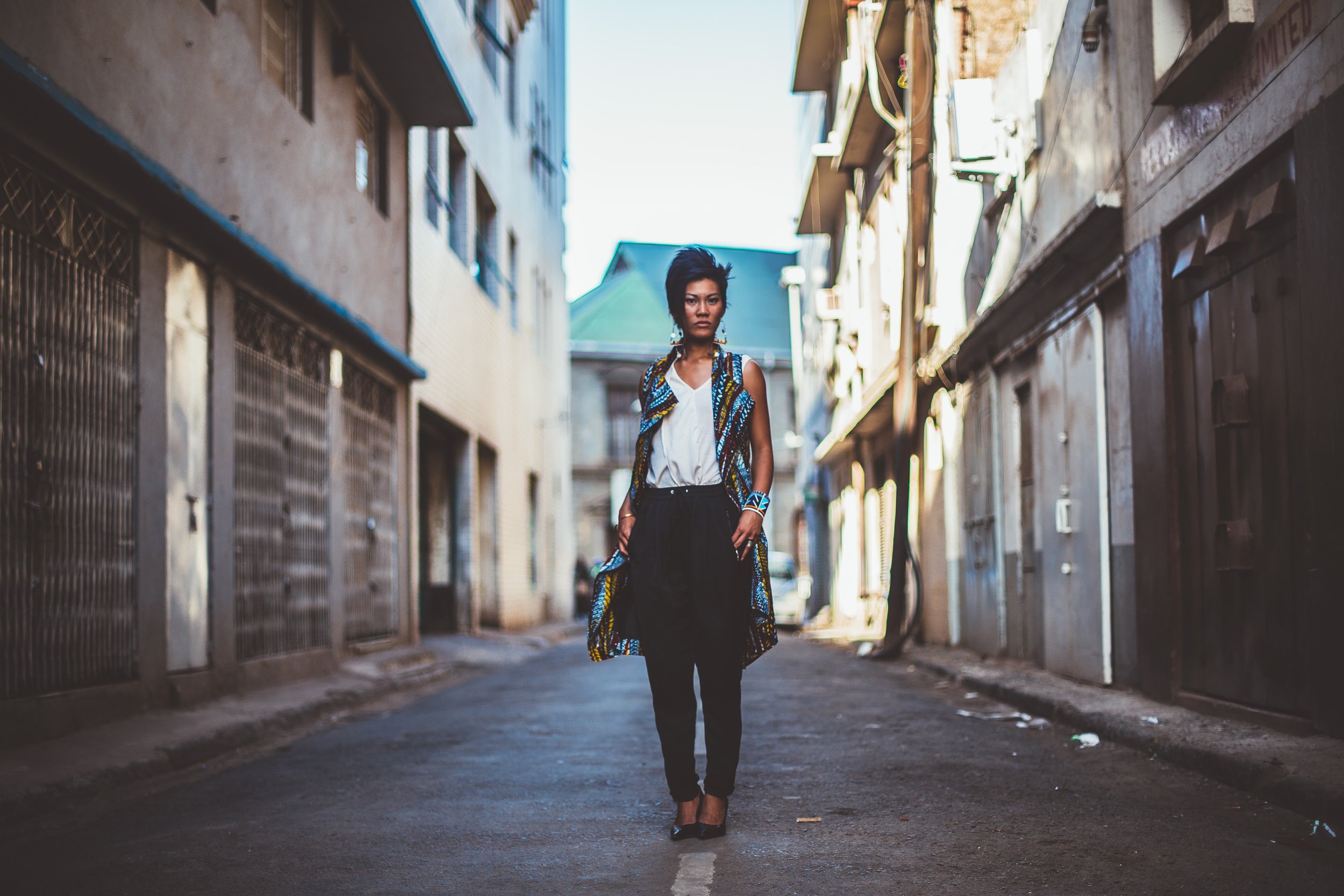
Meet our Fellows
Nikole Lim
Freely in Hope
Nikole Lim
Berkeley, California
Survivors leading survivors
When Nikole Lim was a child, her grandfather decided to serve as a missionary in rural China after his retirement. Faith was important in Nikole’s family, and she knew growing up she was a “fourth-generation” Christian. When her grandfather sent home photos from his mission, these photos sparked deep curiosity in Nikole, and became a launch point for all that came after.
When she saw the photos, Nikole saw people who looked like her, but whose lives were very obviously different from her reality growing up in San Francisco as a third-generation Chinese American. The contradiction left Nikole beginning to figure out what her connection was to the rest of the world, and wanting to learn more about different cultures and parts of the world.
Nikole started dabbling in photography and filmmaking in her teen years. She realized that the stories told on the news did not reflect the world she lived in. Not only were there a disparity of diverse voices delivering the news, but the stories told on the news were skewed to make it appear as though the women of color, especially, “were complicit in their own suffering” says Nikole. “Yet, based on stories that were told to me by my elders, I knew that wasn't the case, that there are other external factors that cause the sense of pain of suffering and poverty.”
This realization drove Nikole to get more serious about documentary film, in particular. She earned her undergraduate degree in film production from Loyola Marymount University, studying in Los Angeles. Then she began working for international nonprofit organizations as a filmmaker in marketing departments, traveling around the world and hearing stories from people. In the beginning, it seemed as though Nikole was able to combine her passions, but eventually, it began to feel insufficient.
“I was going in and out of homes, going in and out of villages, going in and out of countries, without any sense of responsibility to the people that I was meeting,” Nikole describes. “To go into someone's tiny home and they would serve me this lavish meal that I know that they couldn't afford. And I would expect them to open up and share their story with me, [then] take that story, give it back to the organization, not knowing what had happened to them.” The understanding that simply meeting people and capturing their stories was not enough began to build in her. She knew that she would have to be a part of the process of journeying with others in their stories.
While she was doing this nonprofit work, Nikole had the opportunity to meet survivors of sexual violence all over the world. When she met some of these survivors, girls and women in Kenya and Zambia who had dreams of going to school but their education was not supported by their families because of their gender, she knew she wanted to change that. At first, Nikole supported these girls privately, believing in their abilities and wanting to ensure the contribution she made went directly to their education, but after some time, Nikole felt a call to journey with them more deeply.
Freely in Hope
What would it look like to build an organization, led by survivors, focused on their needs and dreams, as they saw it? Nikole was determined to find out. This is how Freely in Hope was created, an organization constructed around the idea that survivors of sexual violence are the experts. Nikole says: “we recognized that the dream was a world free of sexual violence, that no other child would have to endure sexual abuse again.”
For the past thirteen years, everything Freely in Hope has done has been guided by this principle. In the beginning, Freely in Hope was focused on scholarships, so that girls who had been unable to complete their schooling would be able to. Quickly, though, Nikole realized that “the girls couldn't study or focus in school if they hadn't eaten that day, or if they had to hustle on the streets in prostitution because their nieces and nephews needed food to eat, or if they were still living in close proximity to their abuser, and they were afraid of leaving the house.” So, inspired by the needs of survivors, a more holistic approach was piloted, and over time, the girls and women themselves wanted to share their own stories, resulting in resources and curriculum, along with leadership and scholarship programs.
Two recent initiatives, Redeeming Sanctuaries, and the publication of a children’s book, Pendo’s Power, illustrate the survivor-led ethos of Freely in Hope.
A common thread Nikole heard from survivors across the world was that many of them experienced sexual violence in and around the church. As a person of faith, she also knew that Christian organizations were not talking about this significant issue, and in fact, many were allowing abuse to thrive under the cover of their theologies. Over the past few years many powerful people and churches have been uncovered and brought to light. When brave women revealed Nikole’s own mentor as an abuser, it was even more clear how pervasive sexual abuse is in Christian churches, and how important her advocacy was. “We as leaders need to merge our public advocacy and our private lives as well, so that the public and the private are in alignment with what we actually value and what we believe in,” she believes.
So Freely in Hope held Redeeming Sanctuaries, an event designed to equip Christian leaders with the tools and resources they need to promote safety in their churches and organizations. Attendees heard from a panelist of survivor-leaders on ways to support survivors and prevent abuse. “Churches and Christian organizations and leaders inspired by their faith can transform historical patterns of abuse and violence against the most marginalized and instead uplift the flourishing of all people across all our communities,” says Nikole.
A second responsive project Freely in Hope has begun is the publication of a children’s book, Pendo’s Power. The book tells the story of Pendo, a six year old girl growing up in the Kibera slum in Kenya, who teaches her friends about safe touch, consent, and the power of their own voices. Pendo’s Power is authored by Lydia Matioli, the Kenyan Program Director at Freely in Hope, and it is inspired by her own story. Lydia first became involved with Freely in Hope as a scholar and has served in many capacities, from scholar all the way to Program Director. Lydia created a program that taught children about consent and safe touch, visiting with children in schools. With the onset of the Covid-19 pandemic, many programs weren’t able to be held in the same way, but a children’s book helps to share the same messages, with hopefully even a wider audience. Freely in Hope worked with a Kenyan illustrator and is seeking to release the book in the US in the fall 2023.
Over the next few years, Nikole plans to transition from her founder and director role to a training and resourcing role, to allow Freely in Hope to be fully survivor-led and fully African-led. “I really believe that African indigenous survivor leaders can pave a better way forward for all of us,” Nikole remarks. “As an organizational leader providing survivor care, it also means listening to the voices of your community and listening to your staff members, so that how you're shaping your organization is actually reflective of what your community needs.”
Profile by Anna Meyer







